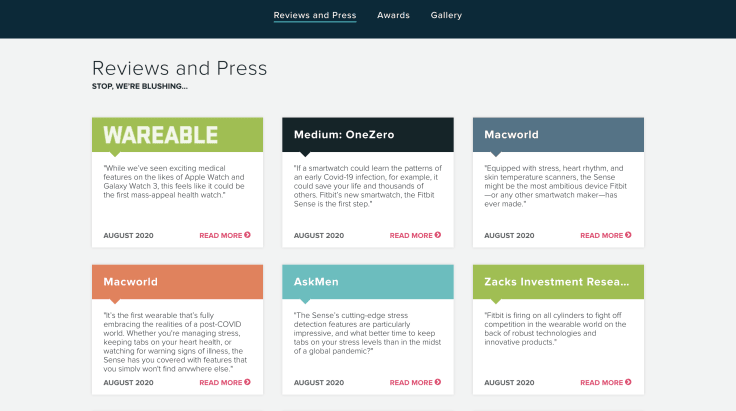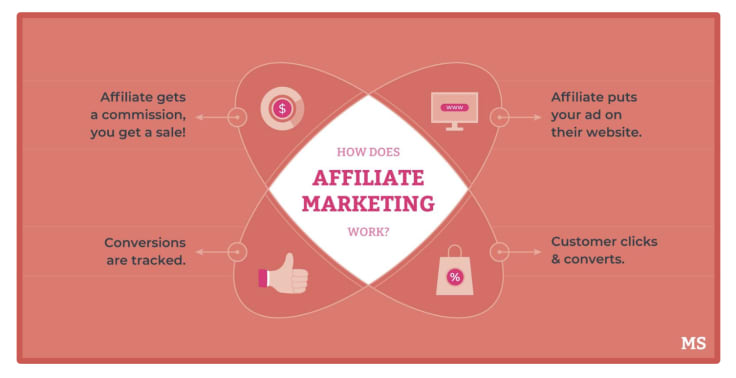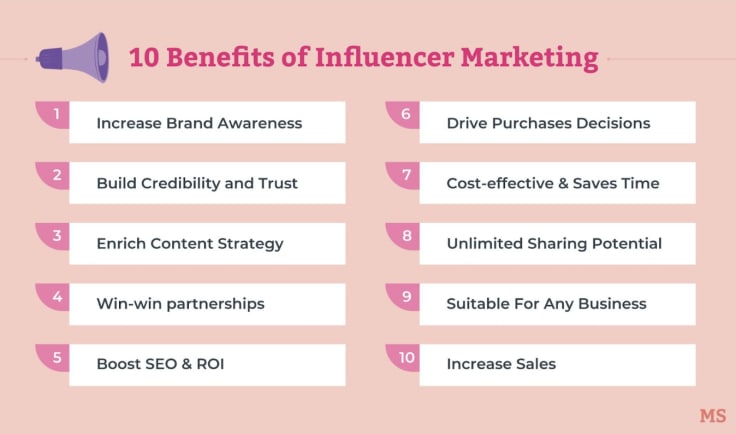Showing top 0 results 0 results found
Showing top 0 results 0 results found
The Importance of Social Proof in Ecommerce Social Media Marketing

As an ecommerce brand, you may struggle to get satisfied customers to influence your prospective customers. However, if you start leveraging the positive effects of customer reviews, you'll turn the situation around. Doing so can help you consistently outsell your competitors.
Social proof in ecommerce provides a powerful tool for showing potential customers that your product is worth buying.
In this article, I'll discuss why customer reviews work well in marketing and provide examples of how you can use social media to increase sales for your business.
🤖 Would you like to grow your business with AI?
First things first — what is social proof?
Social proof is a psychological phenomenon. It happens when people conform to the actions of others to feel like they fit in or are part of a group.
Your business can utilize social influence as a marketing tool. Use it to influence decisions to buy your product. It happens because people often look to others for guidance on what to do, especially when unsure or new to something.
Why does social proof work well?
It works because it helps build trust and credibility for your business. It can also increase conversions because it helps give people the push they need to purchase.
It does this by creating the bandwagon effect. People conform to the actions of others because they want to be part of a group.
All ecommerce businesses should strive to get online shoppers to hop on their bandwagon by using social networks effectively. If happy customers tell potential customers how great your product works via positive reviews, you'll experience the how and why of social proof.
The four principles of social proof

Uncertainty
The first principle is uncertainty. Other people and their opinions influence us most when we don't have enough information yet. If you're considering buying a new product but don't know much about it, you might look to reviews to help with your decision.
Becoming overwhelmed by the possibilities is another form of uncertainty that affects a buying decision. In most markets, too many choices exist. Many online customers feel resistance when they can't choose from an extensive product line or between several competitors. It leads to inaction.
You should use social proof to help confused prospects see your product as the obvious choice.
Similarity
People listen to others who they perceive as similar to themselves. That could mean people from the same social group, age range, or geographic location. It could also refer to people with the same interests, lifestyle, or identity. We tend to trust people who are like us because we feel a connection with them. We think they understand us.
Think about targeting your marketing messages to specific demographics and use social proof that appeals to them.
Expertise
People with expertise or authority on a subject effectively influence others. Most of us trust experts because we think they must know what they're talking about. We believe they can provide valuable insights. Devise ways to use social proof from experts to build trust and credibility with your target audience.
Number
Your prospective customers will trust a message when they see many others liking it or sharing it on social media platforms. Over time, work to gather many social proof examples to use in your marketing.
Examples of social proofing
Let's say you’re thinking about buying a product from an ecommerce store. You check out the reviews and see that other customers give it high marks. The social proof of these reviews could lead you to make a purchase.
Or, let’s say you want to try a new restaurant in town. You check out the reviews on social media platforms, and most people say it’s excellent. You’ll likely visit that restaurant based on the past positive reviews of others in your community.
While the two previous examples should help you understand social proof from a conceptual standpoint, there's nothing better than a specific example. Look at Fitbit's social proof strategy on its Buzz page.

As you can see, each press mention and review stacks up to a plethora of social infleuce about the product. At the bottom of the page, the "Celebrity Sightings" section reveals additional social proof for potential customers to review.
How can you use social proof in social media marketing?
Here are ten ways to integrate informational social influence into your ecommerce social media marketing strategy.
Get affiliate partners to talk
An affiliate partner is someone who promotes your product or service in exchange for a commission on sales. If you can get your affiliate partners to write online reviews about your product, it can increase online purchases via social proof.
Endorsements from notable consumers
A notable product consumer could be a celebrity, athlete, or well-known influencer in your industry. If you can get an endorsement from one of these people, it can add social proof to your ecommerce brand. People will more likely trust your brand and purchase from you.

Recommendations from experts
Recommendations from industry experts can come from well-known bloggers, journalists, or industry analysts. They can also come from less well-known voices, including friends, family, and other consumers. Whatever the source, when someone we perceive as an expert recommends a product, it carries weight.
Use user-generated content
User-generated content (UGC) is any content created by someone other than your brand. This content might include product reviews, social media posts, and blog articles. UGC provides social proof because it's coming from an unbiased source: a real customer already using your product.
Hosting a contest is an excellent way to create user-generated content.
This strategy encourages participants to submit photos or videos of themselves using your product. You can also offer incentives for customers to write Google reviews or post about their experience with your product on social media.
Perform a case study
A case study is a story that details how your product or service helped solve a problem for a specific customer. Case studies provide social proof because they show prospective customers that you have experience helping people just like them.
Each case study created by your brand should include at least one authentic quote from your satisfied customer. Look for positive social proof on your social media channels. Reach out to those people and ask if they will agree to be your next case study.
Share customer reviews
By sharing product reviews from your customers, you can show other online shoppers that a current customer loves your product.

Display customer testimonials
A testimonial is a written or video statement from a satisfied customer that effectively promotes your product. Similar to a case study, getting customer testimonials is one of the most effective ways to share positive reviews about your products.
Share your customer data numbers
If you have customer data numbers, such as how many people use your product or service, share them on social media. Your prospects will use that information to decide to buy from your store.
Influencer partnerships
An influencer partnership involves working with a market leader to promote your products. Your target market will listen to the influencers in your industry. For example, teaming up with a popular fashion blogger can pay big dividends if you're in the fashion industry.

Feature your awards and badges
If you’ve won any awards or have badges from popular websites, feature them on your social media accounts and website. It'll show your target market that you’re an authority in your industry.
The advantages of using social proof in ecommerce social media marketing
Many benefits exist when utilizing the psychological principles of positive reviews for your ecommerce social media marketing plan. Here are seven top advantages to consider.
Increased ecommerce conversion rate
An increased conversion rate is ecommerce businesses' most obvious social proof benefit. By utilizing one or more of the social proof types listed above, you can increase the number of prospects that take action and buy from your brand.
As an ecommerce business owner, strive to find ways to improve your sales conversion rates continuously. It's often a metric that can increase ROI faster than trying to increase traffic. Sometimes, a business can quickly increase profits by converting a significant percentage of its current traffic.
Placing high-quality social proof on social media from thrilled customers, for instance, can help you squeeze additional conversions out of the traffic and leads you're generating monthly.
Influence online shoppers
As an ecommerce business, one of your primary goals is to get in front of as many potential shoppers as possible. When they're ready to make an online purchase, you want to be top-of-mind.
Social proof can help you accomplish this goal by increasing the reach of your social media marketing messages.
When prospective customers see that others like them have purchased from your store, they'll take notice of your brand.
Reduces return rates
When customers see third-party recommendations before purchasing, they feel satisfied with their decision.
Testimonials, case studies, and other social proof examples help shoppers feel confident that they’re joining a group of other solid decision-makers. They know other people purchased the same product and enjoyed it.
As a result, they're more likely to allow your customer support team to fix any initial challenges they experience using the product.
Reduces “purchase anxiety”
Many online shoppers experience what's known as "purchase anxiety." The apprehension comes with making a purchase, especially a big one.
Your social proof marketing efforts work to reduce shoppers' anxiety. For instance, user-generated content on an online or social network guarantees that real customers overcome their anxiety to make positive purchase decisions with your company.
Lessening a prospect's anxiety makes it less likely to second-guess their decision or seek out a competitor's product.
Consumers trust other happy customers
One of the most important social proof benefits is that it helps build trust between your brand and potential customers. Customer trust begins with showing how you already satisfy your current customer base.
In general, consumers trust other consumers more than they do a brand. They know that brands will always say good things about their products. But, when they see positive customer reviews, testimonials, and social media posts, they know that the personal recommendations originate from an unbiased source.
🤖 Would you like to grow your business with AI?
Distinguishes your business from the competition
In many industries, social proof is the differentiating factor between businesses. If two companies offer similar products at similar prices, but one has more social influence, and proof than the other, the company with more social proof will likely win the sale.
When evaluating your competition, take a close look at their social media presence and customer reviews. See what they're doing well and try to find ways to improve it.
Also, consider the social proof opportunities your competitors haven't used yet.
It's not easy to influence purchasing decisions via social proof. It takes effort and sacrifice to gather testimonials. Your team will need to invest time in creating case studies. For example, you and your customer support staff must contact customers for positive quotes to build the case study.
Keep the list of other social proof strategies we outlined above in front of you at all times.
Ask yourself which methods you and your competitors haven't used effectively yet. Then, step in to fill that void.
As you layer additional social proof into your marketing plan, you'll find more of your target market gravitating away from competitors who miss this opportunity.
Helps build a positive brand image & reputation
Social proof instills trust in your brand. It helps you build a reputation as a company that's trustworthy and credible.
Customers see your company getting endorsed by other people like them. They know you're an authority in your industry because of the quotes from experts on your website. As you build this positive reputation, it becomes easier to win customer loyalty.
Conclusion
Social proof in ecommerce is a powerful marketing tool because it uses the trust that consumers have in other people to sell your products. Show your prospects several social proof examples throughout the sales cycle. Doing so will instill your brand's trust to become a market leader.
Social media marketing for ecommerce can help you build relationships with potential customers, improve conversion rates, lower buyer's remorse, lessen returns, and help your brand stand out from the crowd. As a result, you're likely to see an increase in sales.



